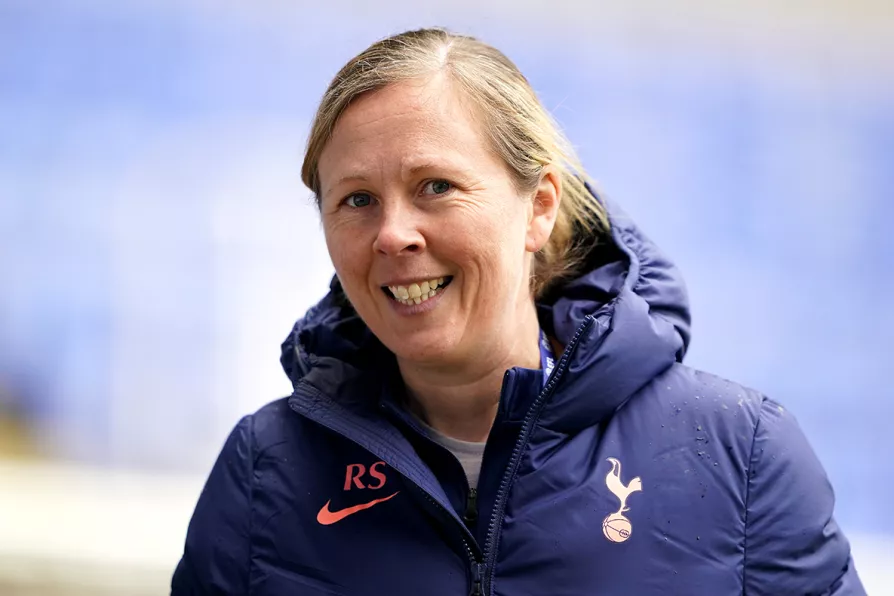
 Rehanne Skinner
Rehanne Skinner
IN NOVEMBER of last year, Tottenham Hotspur looked a club in disarray. Languishing in 11th in the Women’s Super League, longtime managerial duo Karen Hills and Juan Amoros had both left and the club seemed to be heading for the drop.
Under the two, Spurs had performed brightly for some of the previous season – their debut in the WSL – climbing up the table before then dropping down to 7th. But in the next campaign, they began to struggle and it seemed as if a glass ceiling had been reached. Caught up in a relegation dogfight with Bristol City and Birmingham, something better was desired by the Spurs board.
Having brought in Alex Morgan for a short spell, the spotlight placed on the club skyrocketed. On the initial media call, many from both sides of the Atlantic were present, and those who rarely covered the women’s game flocked to their matches for a chance to see the two-time World Cup winner play.














